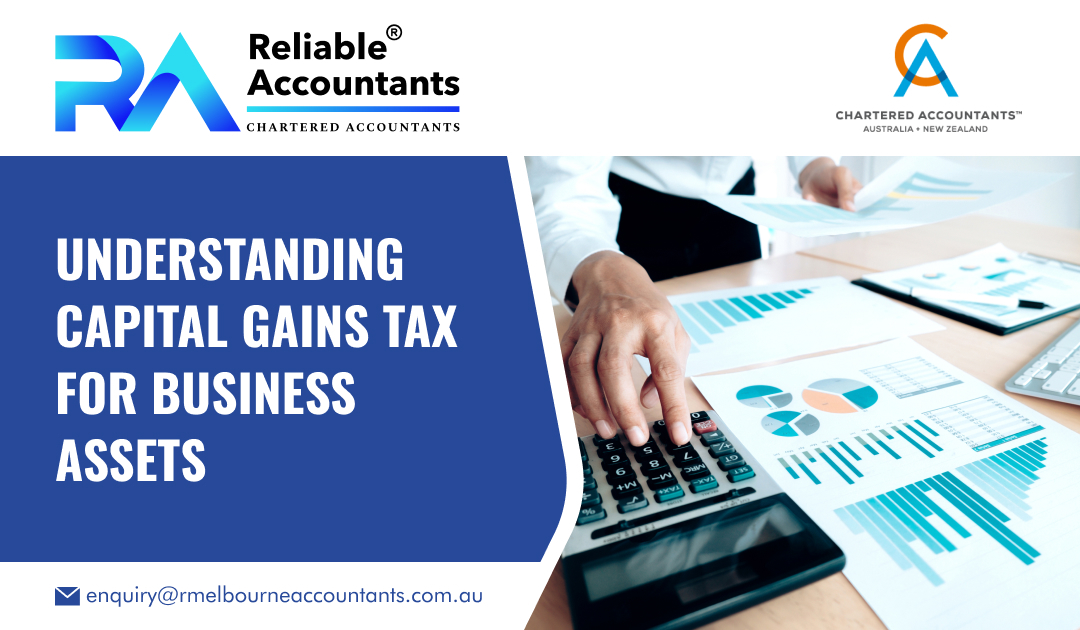Capital gains tax (CGT) affects businesses when a particular event takes place, such as the sale of a business or commercial property. You can defer or disregard some or all of a capital gain from an active asset with the small business CGT concessions. Depreciating assets like business equipment are usually exempt from CGT unless you use them for a personal or other non-taxable purpose. To learn more about capital gains tax, you can also get help from professional taxation accountants.
What is a capital gains tax?
Capital gains tax is the tax paid on profits from selling assets, including investments, such as crypto, shares, and property assets. It is a part of your income tax, not a separate tax. A CGT event may be triggered when you sell assets. This is when you have to report capital gains and capital losses in your income tax return. If you have a:
- Capital gain, will maximise the tax you are liable to pay – you would like to work out how much tax you will need to pay and set aside funds to cover it.
- Capital loss, you can offset it against any capital gains in the year they happen, or in coming years, and minimise the tax you need to pay – it’s essential to include losses on your tax return.
List of CGT assets and exemptions
Check if your assets are liable to CGT, exempt or pre-date CGT.
- Assets obtained prior to 20 September 1985 are not liable to CGT.
- Most properties are subject to CGT, including business premises, vacant land, rental properties, hobby farms, and holiday homes. If you obtained property prior to 20 September 1985, any property additions or improvements made after that date may be liable to CGT. If you are unaware of the conditions when you need to pay CGT, you can reach out to the best accounting firm.
- Your primary residence is generally exempt from CGT. However, CGT may apply if you use it for business purposes, rent out a portion of it, the property is located on more than 2 hectares of land, or if you are a foreign resident who does not meet the requirements of the life events test when the ‘CGT event’ takes place.
- CGT doesn’t apply when an eligible granny flat arrangement is varied, created, or terminated.
- Your motorcycle or car is not liable to CGT.
- CGT applies to units, shares, and similar investments when a CGT event occurs. This includes when you dispose of them or receive a distribution from a managed fund.
- CGT may apply when you sell your crypto assets. When you search for ‘tax accountants near me’ for handling CGT for your business, make sure they are experienced and registered.
- A capital gain on a personal use asset is liable to CGT if it costs you above $10,000 to obtain the asset.
- A collectable is liable to CGT unless you obtained the collectable for $500 or less, obtained a share in the collectable for $500 or less prior to 16 December 1995, or obtained a share in the collectable when the collectable had a market value of $500 or less.
- Intangible assets are liable to CGT, which include leases, licences, goodwill and contractual rights.
- Foreign currency is liable to CGT.
- Depreciating assets are not liable to CGT.
What is CGT record-keeping?
You need to maintain records that are relevant to check out whether you have made a capital gain or loss from a CGT event. You must keep records to prove when you obtained and disposed of any CGT asset and your proceeds of disposal and other costs associated with the asset. Opting for bookkeeping services to manage these records would be beneficial to your business. You must maintain records for 5 years after the year the CGT event occurs.
Conclusion
The blog shares information on capital gains tax for business assets, possible CGT exemptions, and record-keeping for CGT. If you are unfamiliar with the record-keeping required for CGT and assets and exemptions, you can reach out to Reliable Melbourne Accountants.

